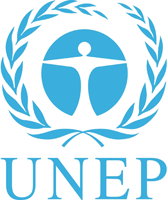Receive ENBOTS Meeting Reports |
||
|
Receive our ENBOTS bulletins and reports by email: |
||

| Follow @enbclimate | ||

Loading... |
||
|
Receive emailed updates with the news articles above plus related information and announcements from our CLIMATE-L community mailing list: |
||
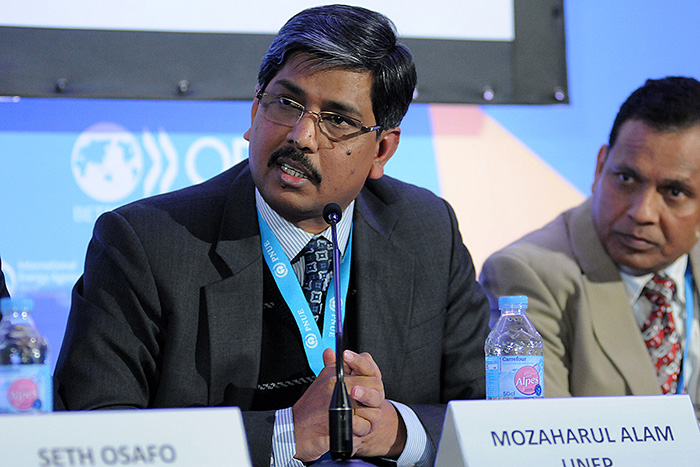 Mozaharul Alam, UNEP, chaired the session
Mozaharul Alam, UNEP, chaired the session |
This session was chaired by Mozaharul Alam, UNEP, and moderated by Jérôme Malavelle, UNEP. Emira Fida, UNEP, introduced the event, noting UNEP’s work on climate change responds to country needs as they transition into low-carbon development pathways. Madeleine Sarr, Senegal, described UNEP’s support to her country’s preparation of its Intended Nationally Determined Contribution (INDC). She noted Senegal, along with others in the Sahel region, is affected by temperature rise, sea-level rise and rainfall variability, and explained that Senegal’s INDC contains mitigation and adaptation, which require both domestic and international support for implementation. She called on UNEP to continue providing support in building the capacities of in-country experts, particularly those concerned with monitoring, reporting and verification (MRV). Sandee Recabar, the Philippines, presented on linking global commitments to policies and actions at the national, subnational and local levels. She noted that the South East Asia Network for Climate Change (SEAN CC) offices have assisted countries in the region to prepare their INDCs through trainings, workshops and information sharing. She underlined the Network’s responses to country-specific needs, and stressed the need to mainstream lessons on climate action from the local to the national level. Chu Thanh Huing, Viet Nam, shared SEAN CC’s assistance to countries in the world, highlighting support for Vietnamese negotiators at UNFCCC’s nineteenth and twentieth Conferences of the Parties (COP), noting that this increased their contributions tremendously. Explaining that SEAN CC is a “people’s network,” she highlighted the Network’s approach to building capacity for female staff working on climate issues. Seth Osafo, African Group of Negotiators (AGN), noted the diverse needs of the 54 African states including: that some are Small Island Developing States; others are middle income countries; some need support to combat desertification; and many are least developed countries. He drew attention to the financial support provided by UNEP to coordinate the varied positions on climate change in order for the continent to “speak as one voice” at climate change negotiations. He highlighted that this support is provided to the lead coordinators of specific negotiating topics, as well as to the AGN as a whole. Mukand Babel, Asian Institute of Technology (AIT), presented the key messages from the Regional Forum on Climate Change (RFCC) including, inter alia, the importance of a region-specific climate knowledge base for Asia; the need for cross-sectoral approaches to adaptation; the need for incremental as well as transformational changes; and the importance of citizen engagement. Rodrigo Suárez Castaño, Colombia, stressed the need for technology, policy and practice for the implementation of INDCs. He briefly described the process of preparing a nationally appropriate mitigation action (NAMA) on fuel efficiency, highlighting UNEP’s support in the preparation phase and noting the need for strong multistakeholder collaboration during the entire process. |
||
|
IISD Reporting Services, through its ENB on the Side (ENBOTS) Meeting Coverage, provided web coverage of the event “UNEP/SEAN - Capacity Building through Climate Change Officials Networking. | ||
 Panel (L-R):
Chu Thanh Huing, Viet Nam;
Seth Osafo, AGN;
Mozaharul Alam, UNEP;
Mukand Babel, AIT;
Madeleine Sarr, Senegal;
Sandee Recabar, the Philippines; and
Jérôme Malavelle, UNEP
Panel (L-R):
Chu Thanh Huing, Viet Nam;
Seth Osafo, AGN;
Mozaharul Alam, UNEP;
Mukand Babel, AIT;
Madeleine Sarr, Senegal;
Sandee Recabar, the Philippines; and
Jérôme Malavelle, UNEP
|
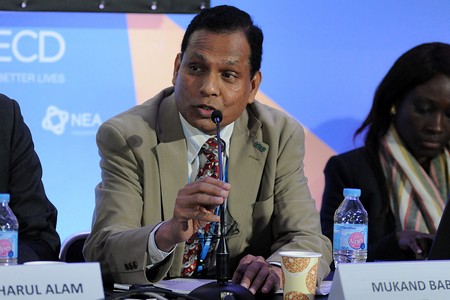 Mukand Babel, AIT, called for a region-specific climate knowledge base for Asia.
Mukand Babel, AIT, called for a region-specific climate knowledge base for Asia.
|
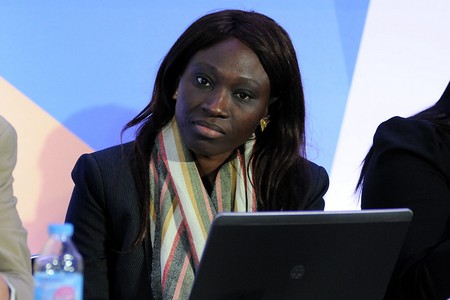 Madeleine Sarr, Senegal, called on UNEP to continue providing support in building the capacities of in-country experts.
Madeleine Sarr, Senegal, called on UNEP to continue providing support in building the capacities of in-country experts.
|
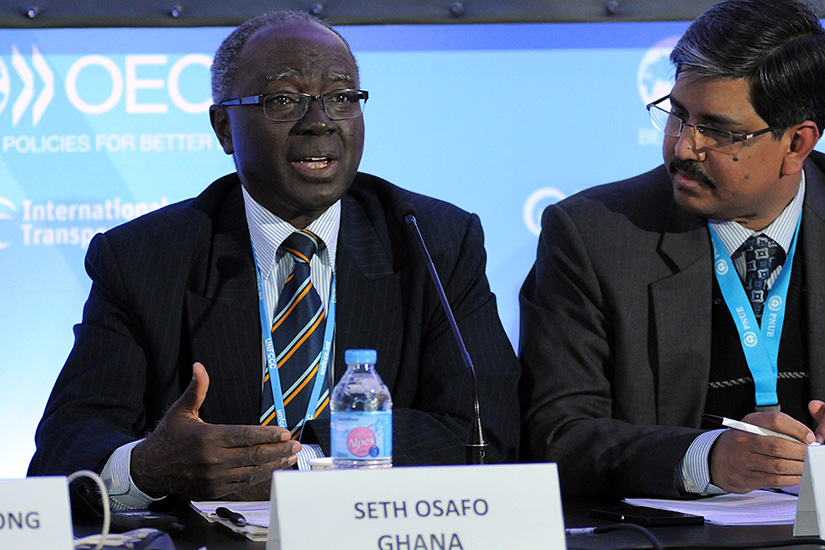 Seth Osafo, AGN, drew attention to UNEP’s support in the coordination of the African position at COP 21.
Seth Osafo, AGN, drew attention to UNEP’s support in the coordination of the African position at COP 21.
|
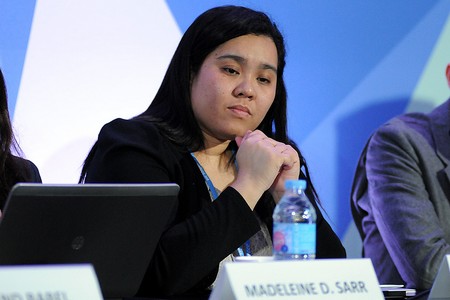 Sandee Recabar, the Philippines, stressed the need to mainstream lessons on climate action from the local to the national level.
Sandee Recabar, the Philippines, stressed the need to mainstream lessons on climate action from the local to the national level.
|
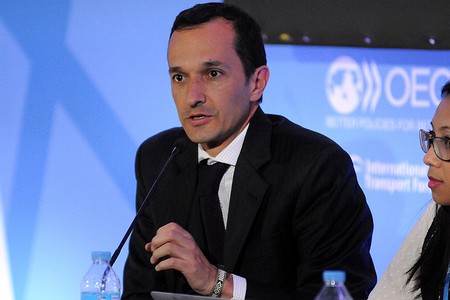 Rodrigo Suárez Castaño, Colombia, described the process of preparing a NAMA on fuel efficiency.
Rodrigo Suárez Castaño, Colombia, described the process of preparing a NAMA on fuel efficiency.
|
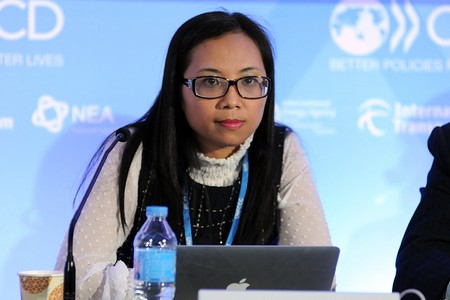 Chu Thanh Huing, Viet Nam, lauded SEAN CC for their support for climate change negotiators in South East Asia.
Chu Thanh Huing, Viet Nam, lauded SEAN CC for their support for climate change negotiators in South East Asia.
|
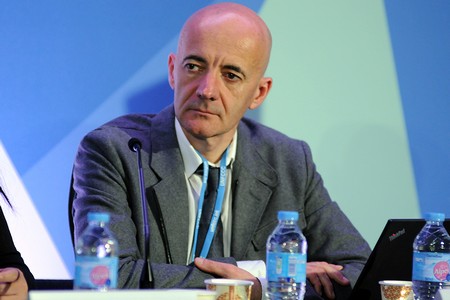 Jérôme Malavelle, UNEP, moderated the side event.
Jérôme Malavelle, UNEP, moderated the side event.
|
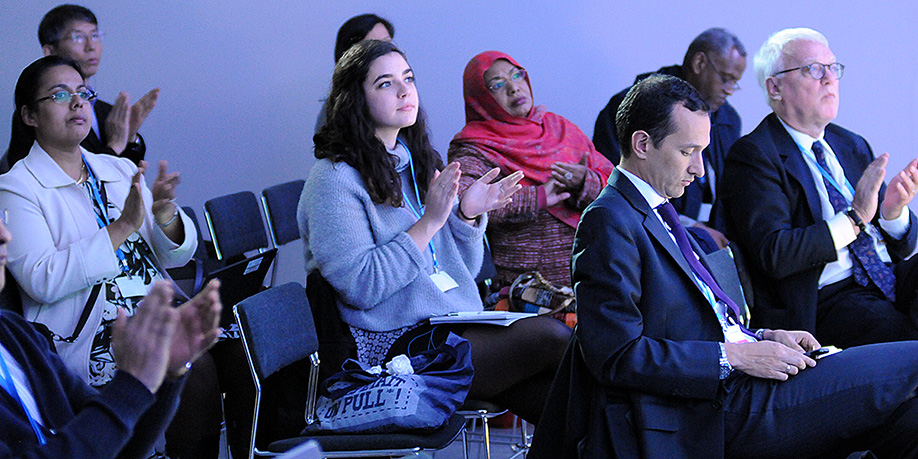
|
|
IISD Reporting Services is grateful to the many donors of the Earth Negotiations Bulletin (ENB) and recognizes the following as core contributors to the ENB: the European Union, the Finnish Ministry for Foreign Affairs, the German Federal Ministry for the Environment, Nature Conservation, Building and Nuclear Safety (BMUB), the International Development Research Centre (IDRC), the Japanese Ministry of Environment (through the Institute for Global Environmental Strategies - IGES), the New Zealand Ministry of Foreign Affairs and Trade, the Kingdom of Saudi Arabia, SWAN International, Government of Switzerland (the Swiss Federal Office for the Environment (FOEN), the Swiss Agency for Development Cooperation (SDC), and the United Nations Environment Programme (UNEP). Funding for translation of the Bulletin into French is provided by the Government of France, the Wallonia, Québec, and the International Organization of La Francophonie/Institute for Sustainable Development of La Francophonie (IOF/IFDD). |
||
